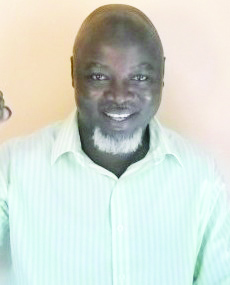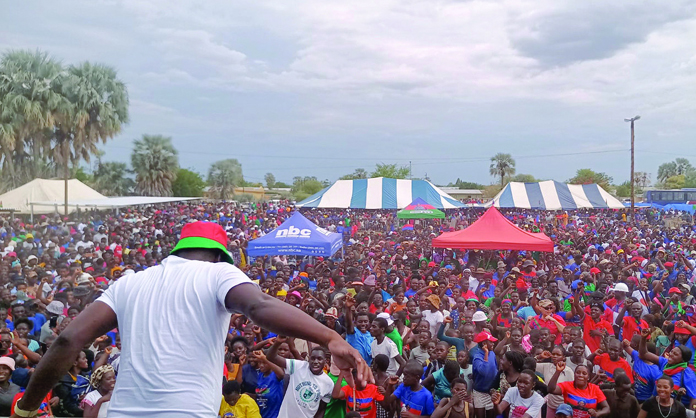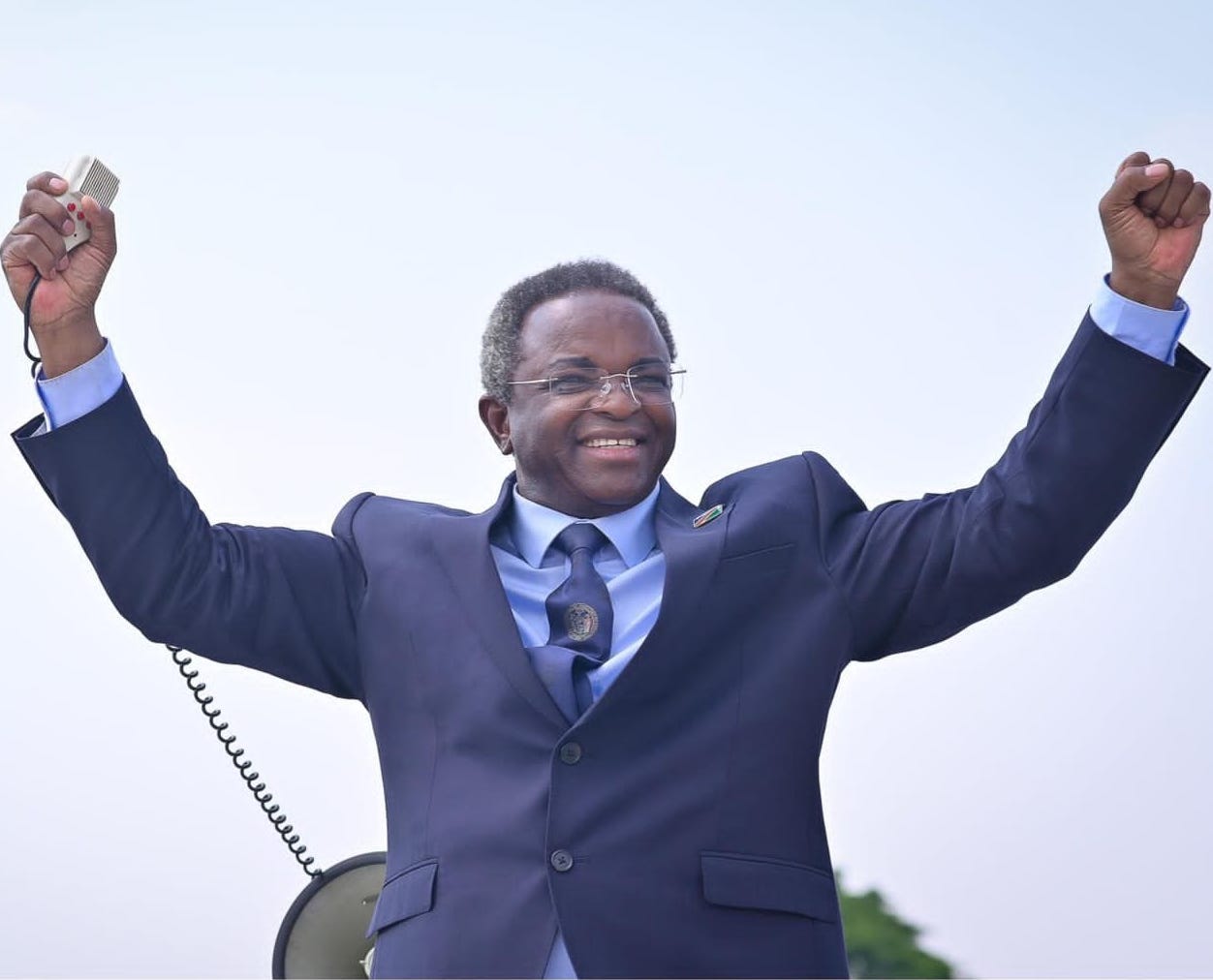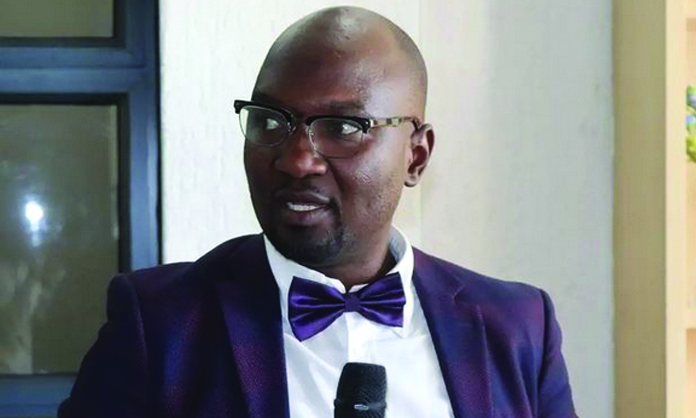During her 2023 state of the region address, //Karas region governor Aletha Fredrick announced that the //Karas region had been selected as a beneficiary of the Harambee cash grant.
This has been wrongly dubbed a modified/conditional basic income grant (CBIG) by the Ministry of Gender Equality, Poverty Eradication and Social Welfare because of pressure from the BIG movement.
BIG is conceptually a universal/unconditional grant whereby people don’t have to jump through hoops to prove they are deserving poor.
The term should not be confused with conditional/means-tested and targeted grants that benefit a few individuals or households.
At present, the Harambee cash grant only benefits 37 053 individuals (less than 2% of the population), who are previous recipients of the Harambee Food Bank and the marginalised community food assistance programme.
According to the ministry, the decision to extend the grant to the region was taken after an assessment found that the //Karas Region was vulnerable because of poor rainfall during 2022/23.
POLITICAL LANDSCAPE
//Karas became a Landless People’s Movement (LPM) stronghold after the ruling party, Swapo, lost significant votes there during the 2019 presidential and National Assembly elections, and the 2020 regional council and local authority elections.
We doubt that drought criteria prompted the Swapo-led government to introduce the Harambee cash grant in //Karas.
It is more likely the grant is being used in the hope of rekindling Swapo’s relationship with the south and regaining a foothold in the region.
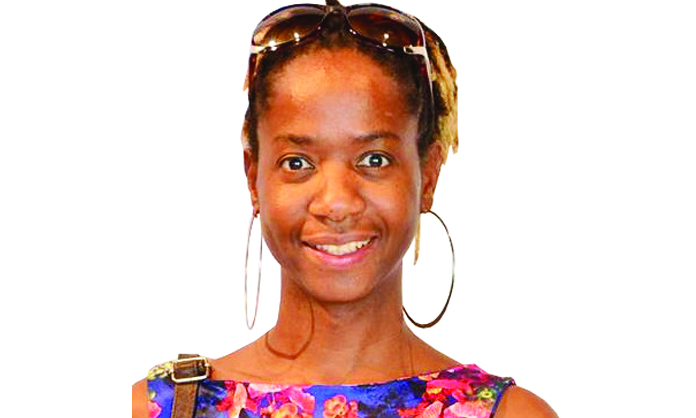
The government has avoided introducing a universal/unconditional Basic Income Grant (BIG) cash transfer programme countrywide which does not leave room for political exploitation.
Universal BIG has been scientifically validated by 164 pilot studies globally – including the 2008-2009 Otjivero Pilot Study, the first of its kind in the world – as the most cost-efficient way to tackle poverty, inequality and unemployment.
This was demonstrated at Otjivero where unconditional BIG resulted in a reduction in child malnutrition, poverty and crime, as well as an increase in self-employment and economic activities.
THE BIG OPTION
Instead of eyeing the Harambee cash grant as a carrot-and-stick [political] tool to gain popularity for the 2024 presidential and National Assembly elections, the Swapo-led government could have implemented a universal BIG.
For years, the BIG Coalition of Namibia has advocated a universal BIG to tackle the unemployment, poverty and inequality crises which threaten our peace and security.
The Swapo leadership seems to find meaning/opportunities in the chaos (precarity caused by poverty, inequality and unemployment) that plagues our society.
The government has used the “when circumstances permit” phrase as an excuse for not introducing an unconditional BIG without making any effort to explore alternative options to step up resource mobilisation – for example, curbing the N$10 billion Namibia loses to illicit financial flows annually; corruption, mismanagement and wastage of public funds on unproductive projects, etc, that see the state lose funds which could be used to improve people’s living conditions.
WAYS AND MEANS
The ministry is currently working on criteria for Harambee cash grant beneficiaries.
Such classic social protection programmes, which employ means-testing to determine an applicant’s eligibility, have been proven to be expensive, wasteful and ineffective at tackling unemployment, poverty and inequality.
Given the difficulties and cost implications of implementing such conditional grants, it is more cost-efficient to introduce a universal BIG, which is self-targeting without having to rely on administratively difficult means-testing with adverse economic incentives.
The ministry should rather revisit and consider the results of the Otjivero BIG Pilot Project – which is widely quoted in international studies of cash transfers – to form the basis for designing cost-efficient social protection programmes.
To avoid social protection programmes being exploited for political gain, it is essential that a universal/unconditional BIG of N$500/person/month for people aged 0-59, be legislated and implemented countrywide.
This will ensure that the triple burden of unemployment, poverty and inequality is addressed.
Awarding a Harambee cash grant per household in certain urban areas is inherently discriminatory and leaves room for exploitation by the ruling party.
Providing each individual person (0-59 years) in Namibia with a N$500 unconditional BIG is a fairer and more efficient approach and will stop potential exploitation of social protection programmes ahead of the 2024 elections.
- Ndumba J Kamwanyah is a multidisciplinary scholar with a PhD in public policy. He is a commentator on everything political, economic, social and cultural
- Rinaani Musutua is a human rights defender
Stay informed with The Namibian – your source for credible journalism. Get in-depth reporting and opinions for
only N$85 a month. Invest in journalism, invest in democracy –
Subscribe Now!


